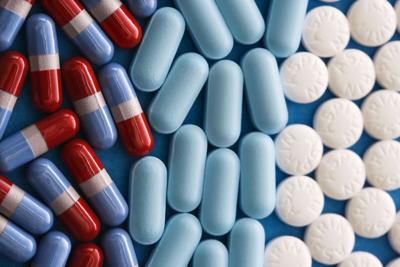As the White House nears a decision on its Section 232 pharmaceutical investigation, which will determine whether imports of pharmaceuticals and their components pose a threat to U.S. national security, that conclusion should already be clear as it relates to generic medicines.
President Trump should treat these more affordable and critical medicines as the national security asset that they are, and build durable public-private partnerships to secure the supply of medicine for Americans for years.
Generics are the backbone of U.S. healthcare, and, like a backbone, we usually don’t notice it until it hurts. Generics fill nine out of 10 prescriptions and lower costs for families, employers and taxpayers to the tune of hundreds of billions of dollars yearly. Too often, we take for granted how affordable and accessible these essential medicines are. These cost savings free up funds to pay for breakthrough innovations. If the generic backbone weakens, then the U.S. healthcare system will start to collapse.
As FDA Administrator Marty Makary acknowledged, most of these drugs are made outside the United States. For decades, Indian manufacturers have been America’s medicine partner — our lifeline — supplying safe, high-quality products at prices that keep care within reach for American families.
In an era of geopolitical tension and supply shocks, Trump rightly wants to de-risk, near-shore, and friend-shore America’s supply chains, especially for something as important as medicine.
Trump seeks, through the use of tariffs, to pressure foreign drug manufacturers to move their operations to the United States to ensure health resilience and the creation of American jobs. The Indian generic companies have already signaled their willingness to work together. The question isn’t whether to enhance medicine security, it’s how. While Indian generics makers want to invest more in manufacturing in the United States, the prohibitive market and regulatory dynamics make such investment nearly impossible.
It is imperative to our national and health security that the president differentiates branded and more expensive pharmaceuticals with affordable and accessible generics, and recognizes that tariffs will not fix the problem driving up prescription drug prices — pharmaceutical benefit manipulators, or PBMs. The top three PBMs and the top three group purchasing organizations control the entire prescription drug market, dictating generic procurement prices. PBMs and GPOs are the gatekeepers for which medicines get covered, and which do not — all while enriching themselves with baseless fees on manufacturers. Tariffs would essentially be a hefty tax bill, wiping out generics manufacturers’ razor-thin margins and driving them out of the market. The result will be severe medicine shortages.
If Trump wants to win on this issue, then, instead of imposing tariffs, he should keep steady access to Indian pharmaceuticals while removing the barriers that are keeping generic manufacturing from flowing onto our shores. The FDA’s newly announced Pre-Check program to give faster approvals to companies that re-shore to America is a step in the right direction.
Given the sheer volume of and reliance on generic medicines by Americans, a disruption of access will serve only to weaken our nation and play into the hands of other countries that do not serve our national interests. No different than our coordination with allies on critical minerals, energy and much more, the medicines Americans take every day deserve the same strategic treatment.
The payoff is tangible — ensured access to cardiovascular and diabetes treatments, antibiotics, mental-health medicines, oncology injectables and more. Stronger price competition, sustained by a healthy base of manufacturers. And a supply chain designed to flex under stress, not fracture.
The choice before the White House is not between national security and affordability. Done right, we can have both. Exempt essential generics from tariffs; stand up a focused public-private program; invite willing, trusted partners to co-build resilient capacity; and align fair generic procurement and drive generic substitution to the benefit of all Americans.
Protect the lifeline today, and we can strengthen America’s medical security for tomorrow. That’s how we keep shelves stocked, prices in check and America secure.











